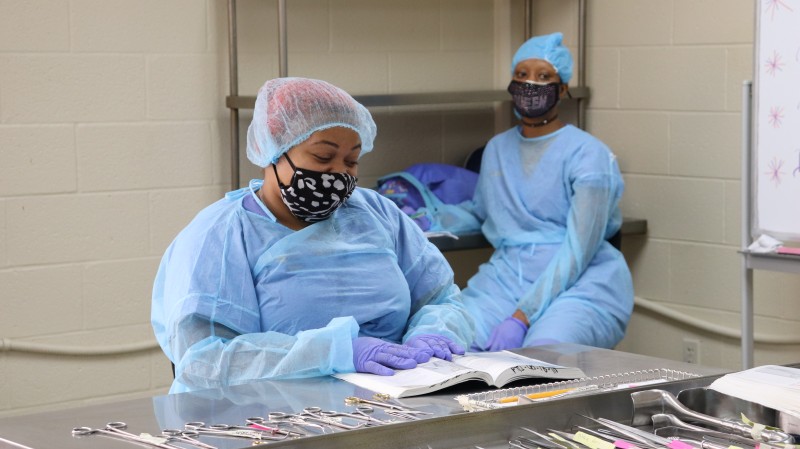Professionals of the sterile processing industry are the unsung heroes working behind the scenes to ensure patient safety in the complex world of healthcare. These hardworking people, also known as sterile technicians, are essential to preserving the sterility and functionality of medical equipment. This blog will cover the transition from sterile processing to the prestigious career of instrument technicians, illuminating their crucial roles and the routes open to those desiring to join their ranks.
Central service technicians‘ precise labor makes every successful operation and medical treatment possible. Cleaning, sterilizing, and packaging medical tools and equipment so that they are sterile and safe for use by patients is their primary duty. The backbone of any healthcare facility is its sterile tech staff, who work tirelessly to avoid infections and uphold the highest standards of patient care.
Many people use a profession as an instrument technician as a stepping stone to a more specialized position. The concepts of sterile processing are advanced by instrument technicians, also called sterile techs. They are in charge of assembling, examining, and maintaining the instruments and cleaning and sterilizing them to ensure their functionality during medical procedures.
Although becoming a sterile tech is honorable, many instrument technicians who want to grow in their careers choose to become certified. These credentials attest to their knowledge and dedication to upholding the highest patient safety standards. Certification for central service technicians provides in-depth training on instrument care, aseptic methods, and equipment maintenance to prepare people for the shift.
Becoming a certified central service technician combines academic study with practical training. Numerous programs for sterile processing technicians offer education on vital subjects, including infection prevention, anatomy, and medical jargon. This expertise provides a solid basis for those looking to work as instrument technicians.
People who work as instrument technicians are given a wider variety of duties. They are proficient in building instrument trays, performing inspections, and troubleshooting equipment, as well as being professionals in sterilizing instruments. The sterile processor’s responsibility also includes working with surgical teams to guarantee that the appropriate tools are available when required, directly enhancing patient safety.
Both sterile processors and instrument technicians continue to place a high priority on patient safety. Their commitment to maintaining equipment cleanliness and operation directly impacts patient outcomes. They help to avoid surgical site infections and other issues by thoroughly cleaning, sterilizing, and maintaining the efficiency of the tools.
Instrument technology careers offer promising opportunities for career advancement. Instrument specialists with experience may focus on surgical specialties like orthopedics or cardiovascular operations. They can also pursue management positions within healthcare institutions, such as those of supervisors or managers in sterile processing jobs.

Instrument and sterile processing technicians are essential parts of the healthcare team. To make sure that instruments are accessible and in top shape for surgical procedures, they work closely with surgeons, nurses, and other medical personnel. Their cooperation is essential to the smooth operation of healthcare institutions.
The progression to prestigious positions of instrument technician is evidence of the dedication of medical professionals to providing high-quality patient care and patient safety. Instrument technicians can expand on the horizon of their sterile processing jobs. Individuals can cross the bridge to excellence by obtaining certification, receiving education, and working hard. This will guarantee that medical equipment is trustworthy and prepared for every crucial moment in healthcare and clean and sanitary.
Read More: